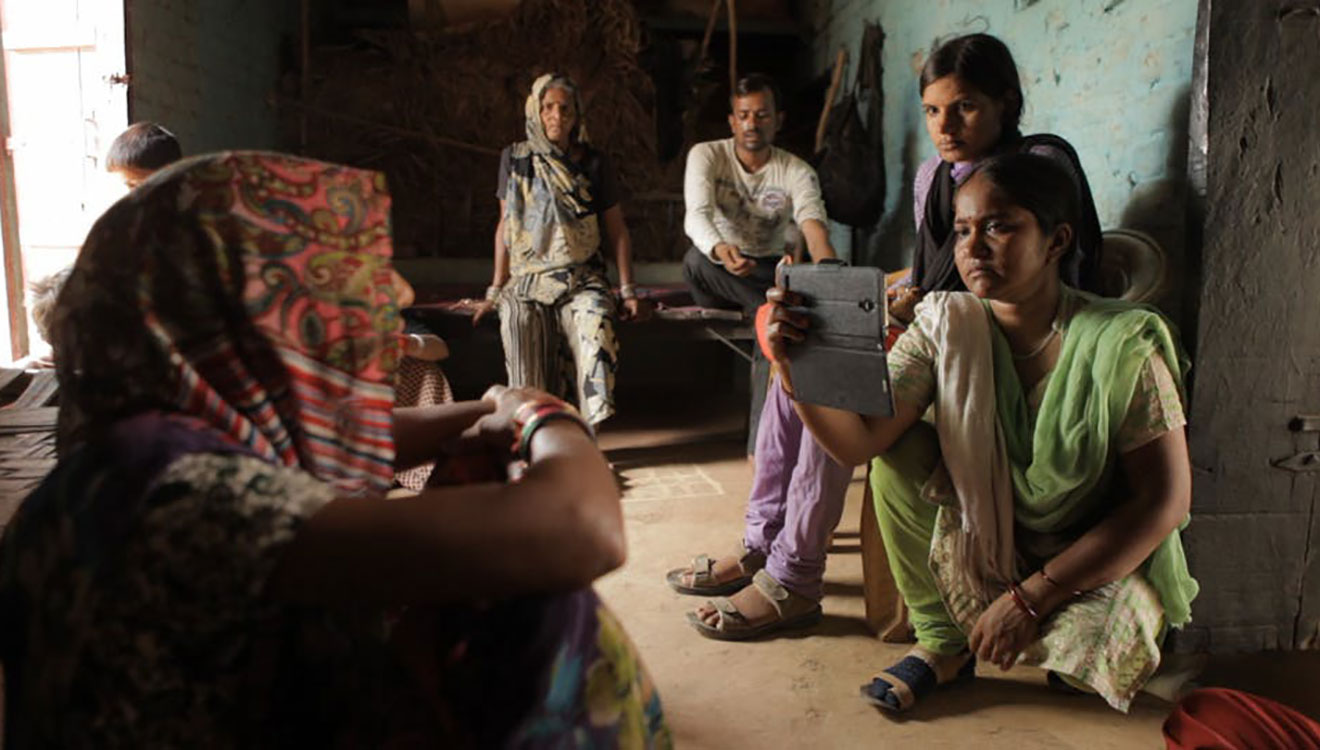The village Jayeshbhai Jordaar is set in treats women with the same care and thought kids extend to their toys. The scene where two infant girls are exchanged between two families in a mutual agreement of marriage, looks a lot like child’s play. “If your sister’s husband hits her, you should hit his sister, your wife.” Mutually-assured marital violence. Boman Irani plays a hardened patriarch in this village, located somewhere in Gujarat. Jayeshbhai (Ranveer Singh) is this man’s son and heir. He gets a look of approval and pride from his father only once in the film, and that is when he plans to shame his wife Mudhra (Shalini Pandey).
When a school-going girl comes to him, with her father, to complain about drunken men harassing her, his suggestion is to stop using fragrant soaps. Kushbu, he says, is the reason for lack of judgement, not their inebriated state. The girl listens to this and sits down in disbelief and helplessness. This scene and many scenes like this are played for laughs. The great thing about Divyang Thakkar’s Jayeshbhai Jordaar is that it mostly manages to keep the seriousness intact, while also finding humour in a bizarre situation. The dough-covered fingerprint of Mudhra, the Sarpanch, is also a nice touch.
The film has many such lovely touches. From the comment that equates the forefathers on the walls to CCTV cameras – watching everything and judging – to how Jayeshbhai’s sister reacts while slapping her husband, it all suggests a film that knows what it wants to say. It is also backed by great cinematography and editing. The screenplay interlaces the wedding album sequence with Mudhra’s child rolling down the windows and saying, “Hawaa aane de.” It is a great way to inject meaning and commentary without saying much.
However, the film is also simplistic. It insists that men aren’t at fault for their behaviour because they only learn what they see and are taught. But it never explains why Jayeshbhai is different. Where did he learn to be respectful and tender with the women in his life? Not from his mother who herself is a victim of internalised misogyny. Is it the wife then or the daughter? Possibly. Shalini Pandey has this innate ability to simultaneously seem meek and strong, an insinuation of strength and power just below the surface of cowardliness and fear. The child actor that plays their daughter is fantastic as well. Her worldliness would be annoying in any other film, but she is the Northstar here.
When looking for a place in India that is safest for women, Jayesh comes across Laadopur – a village in Haryana facing a scarcity of women because of the relentless female foeticide committed in the past. It is understandable for someone like Jayesh, with limited knowledge of gender politics, to consider this place a paradise for women. But for a film trying to discuss gender, it is myopic of the writer to think that a village filled with unmarried men, no matter how non-violent and docile, is the safest place for women. This short-sightedness becomes rather apparent when the film seems to propose that pappis can stop domestic violence. Suggesting that a woman should answer a slap with a kiss is not just disrespectful; it is plain stupid.
That said, there are two other scenes where the word pappi is mentioned, and both work wonderfully. “Saabash Mudhra,” says the doctor after Mudhra pushes her child out of her body, but the Saabash is two-fold. And the scene on the terrace where Jayeshbhai sits in front of a group of women and talks about how a pappi is an admission of love is sweet. It portrays how toxic masculinity affects men and stunts their emotional growth. This same scene also shows how this film isn’t your regular Akshay Kumar fare with a saviour complex. He isn’t there to soothe the women and tell them “Main Hoon Na.” It is about his emotional burden and the women coming to his rescue.
The main reason most of the film works emotionally is Ranveer Singh’s performance. Jayeshbhai is a good man, but he cannot prevent himself from being controlled by his father and the expectations. When his mother says, “You have to listen to society because you have to live with it,” he replies, ”I have to live with myself too.” He is constantly living with the realisation that he is bound to disappoint someone close to him, with every decision he makes. He smiles a lot, but he is rarely happy. A man in constant flux with his surroundings is marvellously characterised by Singh’s security and easy charm. Jayeshbhai looks at Mudhra like she is the most precious thing in the whole world, and that feeling propels the viewer to care about this journey.
Recommended
Jayeshbhai Jordaar is a well-intentioned film that makes some missteps. Still, for the most part, it subverts the expectations one has from a movie about women centred around a man. While Singh holds the film together valiantly, Jayeshbhai falls apart frequently. Even if he gets a horse ride at the end, he is the macho hero trying to save a situation. He is just a father, who wants to be there for his wife in labour. “Prem se bolo,” roars a tired Ratna Patak Shah, Jayesh’s mother, at her husband. His vocabulary doesn’t have the word ‘please’. The film may be naive to think that a single instance of respect or love is all it takes to repair a fractured relationship, but you have to admire its earnestness.
*****
This Jayeshbhai Jordaar review is a Silverscreen original article. It was not paid for or commissioned by anyone associated with the movie. Silverscreen.in and its writers do not have any commercial relationship with movies that are reviewed on the site.



